Great Leap Forward - Interview
by Sarah Rowland
published: 26 / 8 / 2006
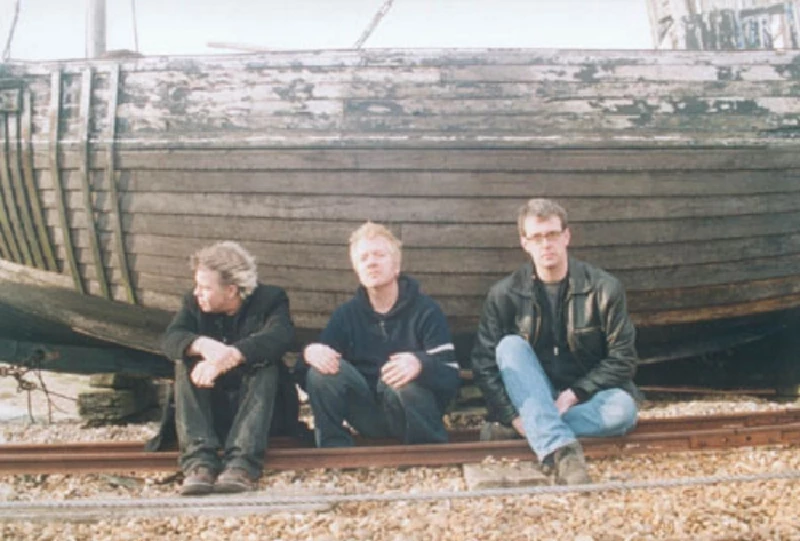
intro
Welsh band Songdog take the old legends from the folk/country era and up-date them with their own brand of raw emotional lyrics. Sarah Johnson chats to singer Lyndon Morgans about songwriting and the band's new album ‘The Time Of Summer Lightning'
Wales has been long overlooked by the rest of Britain when it comes to culture and art, but the music being made by the Welsh shows there has always been a rich surge of unique talent flowing from its borders. The Manic Street Preachers, the Super Fury Animals, Euro's Childs (and Charlotte Church of course) all have their own distinctive brand of music with a certain quality that points back to the roots of the musicians who grew up there. Songdog are different from other new generation folk bands. They seem to be taking the old legends from the folk/country era and bringing them up to date with their own brand of raw emotional lyrics. Front man and lyricist Lyndon Morgans doesn’t just write songs. He creates a set with characters and scenery and places the listener directly on stage to experience the whole thing first hand. It is therefore not surprising that Morgans was an award winning playwright before forming the band with old friend Karl Woodward and Jazz enthusiast Dave Paterson. Songdog have just released their third album ‘The Time Of Summer Lightning’, their debut on One Little Indian records. A copy has already been personally requested by the band's musical hero Bruce Springsteen and has received unflinching support from long time champions 'Uncut'. The songs are everything you would expect from Songdog; down to earth, poignant and effecting with gentle guitar melodies that carry the listener through each poetic narrative like the last train on a rainy night. Although the band have taken their Springsteen and Joni Mitchell influences and moved in their own direction there are some elements of new generation bands in there. Morgan's whispering and gravely vocals particularly bring to mind the Crimea’s gentle songs, while the piano and glockenspiel on Clash cover ‘Janie Jones’ takes the album in a 60’s folk direction. After a summer of festivals and a few live shows across London the band are preparing to tour the new album and are settling in well with their new label. PB : Have you got much going on at the moment? LM : Well the label are booking gigs now apparently, but I don’t really pay much attention to that until they tell me what we are doing. As a band we are just rehearsing material for the next record whenever that maybe. We’ve got about 23 songs arranged and waiting to be recorded, but I guess it will be some time before we get a chance to do them. PB : That seems quick considering there was a three year gap between the last two albums. Do you think the next one will be ready a lot quicker? LM : Well I hope so. The thing is before you have a record deal you can release albums when you want, but as soon as there is a record label involved the whole thing slows up. It will really depend on One Little Indian. PB : This is your first release with One Little Indian. How did you end up working with them? LM : Well I think Lenny, one of our managers, just sent the record to Derek Birkett, the head of the label, because we liked the fact that, unlike major labels, they work with some strange and kind of off beat people. After about six months he just got back to us and said he liked the record and wanted to put it out. As it took a long time to get an answer from him, we just assumed he had passed on it but then suddenly we got a phone call saying he liked it. PB : Did it take a long time to write and record the new album? LM : It didn’t take long to record it. We’ve always done that quite quickly, I think it took about a fortnight to three weeks. The writing of it just took place naturally so by the time the second LP came out I was already in the middle of writing the next one. We’re always like a whole album ahead. We’ve got this one coming out now and the next one is already written, so we ‘re always ahead of the game. PB : Songdog are known for a lot of real life references in their lyrics. Do you get inspired to write just through your everyday experiences or is there some sort of process you go through? LM : No, there isn’t a process. I like the idea of the old nineteenth century French writers and painters who just used to walk around Paris, miles and miles every day just taking in sights, so I just walk around London, anywhere really and just take things in. Just sit and watch people, listen to conversations and things come out of that. PB : How do you know when you’ve got the essence of a song. Is it just something that stands out to you, or do you write a lot of material before you get something that makes you realise you’ve got a great song? LM : Sometimes it takes a long time, and I might write something down as a prose, like there is a track on the album called ‘The Republic of Howling Wolf,’ which I wrote first of all like a long piece of prose. I then thought it would make a good song so I just chopped it about and found a tune for it. Other times a song can start with a melody and then I make the lyrics fit that. It can be either way really, tune first or lyrics first. To me the lyrics are very important and even if I had the best melody or riff in the world if I couldn’t find the lyrics that I liked it wouldn’t be a song. PB : Your lyrics do have a very poetic and sometimes narrative feel to them. Would you consider yourself a writer before a musician? LM: Well I discovered music first, I was into bands when I was young a long time before I discovered good writing> I did write plays for a while and I won a few awards and things but I found that, although I like actors, the people in the background, the people that provide the money for the plays and stuff were just not the kind of people I liked,. they were no different to a lot of the scumbags that you find in any industry I suppose. B ut even though the lyrics are very important to me, Songdog is a band that makes records and we are musicians first and foremost. Since the band started I put everything else on hold and the most important thing to me is the group. It’s not me writing as an individual anymore. PB : Songdog has been compared to Springsteen and Dylon, but with the new album I thought a few songs sounded a bit like the Crimea’s softer songs> How do you think your sound has changed across the three albums? LM: It’s hard to say really. I never think about it. I just write the songs and we play them and after they’ve been out for a while maybe we look at them then. All I know is that sometimes people feel that because we use acoustic guitar a lot and obviously laptop folk, or pixie folk is well in vogue at the moment with things like Devendra Banhart and Fence Collective, and all those things, I feel some empathy with those acts but I’ve always felt like an outsider from all that. I don’t know anyone in the Fence Collective and I’m not a friend of Anthony Hegarty, or Devendra Banhart. I just feel a side from all that really, even though they are playing acoustic music that I relate to. I just think I relate more to a previous generation of acoustic singer/song writers like Dylan, Joni Mitchell and all those people. I’m trying to reach a standard that is more theirs than the new crop of people. I think the new stuff is acoustic music, but with a punk attitude, I love the song ‘Diamond Day’ by Vashti Bunyan, but I would want the lyrics to have more aggression really. PB : It’s so easy almost to hear an acoustic guitar and think folk, but there is a lot more going on in your music, especially on the new album. there are a lot of different instruments being used, LM : The next batch of songs, which will eventually be the next album, will be a lot more orchestral as well. One of the most important LPs in my life has to be ‘Scott Three’ by Scott Walker, which was almost a classical album more than a pop or rock album. We have been investigating that kind of orchestral arrangement as well. It’ll probably be a long time before those songs are heard but I think the development for the next record is that we are using a lot more accordion and banjo. I think each album is a definite progression on the one before it, so far any way. PB: You’ve played a few festivals this summer. Do you enjoy that more than playing gigs at smaller venues? LM: Well, really because our music is quite intimate it needs small spaces and people who have really come to listen. The down side to festivals, although I’m a really big fan and everything, is that your playing open air at like four in the afternoon or something and the audience have come to talk so its' not really the ideal conditions to hear Songdog in. But festivals are very fun to do and I’ll carry on doing them even though I suspect it’s not the best place to take in the music. Noisy audiences really piss me off though, I know it’s nothing personal, but when you write this stuff and you try to put it over and there are people at the bar discussing their up coming skiing holiday or something its just a real downer. PB : I read how much that irritates you in your blog actually, LM : If I had one magic power it would be to wave a wand and people couldn’t talk until the set was over (laughs.) PB : Does that put you off playing live? LM: Well, if we are doing a headlining show, people have come especially to see us and it’s great. You get the kind of silence you need but if you're just an act on the bill somewhere, most of the crowd have never even heard of you, maybe the crowd will start off noisy but little bit by bit the music will filter through and you shut them up as the set goes on. I went to see Damian Rice play Brixton Academy and obviously the place was packed and they had come especially to see him but the audience noise was obviously pissing him off a lot and three or four times he’d stop songs and ask the audience just to be quieter so that he could concentrate. I guess that’s the down side to not playing heavy rock I suppose. PB : Your previous album, ‘Haiku’, was released with Evangeline records, LM: Yeah the first record, The Way of the World', we put out our selves and then Evangeline picked up the second one, 'Haiku', which we were very grateful for and it upped the bands profile but unfortunately they put it out and did nothing with it. It got some good reviews but there was zero advertising. They were a label that didn’t have very much money, but we were grateful that they picked it up for us anyway. For the next album we wanted a label that would get a bit more behind us and so luckily One Little Indian were keen on it. PB : Was it difficult to put out the first album as a new band? LM : Yeah, it was expensive. It cost quite a bit of money to get it pressed up and everything. We knew we had to get some sort of press behind it and luckily for us 'Uncut' picked up on it and featured one of our songs on their cover CD. I think that’s what give us the impetus for Evangeline to notice us and put the second record out. PB : Had you released anything else with any of the other bands you were in before Songdog? LM : I had been in a few other bands like punk, new wave bands, no one you’d have heard of. They weren’t the kind of bands to set the world on fire. My heart wasn’t really in them. It was only when we formed Songdog that I started getting really passionate about song writing and things. PB : Do you think its easier now for new bands to put out music? LM : Definitely, in the old days you had to get a record label. Even on the indie scene you could always press up some vinyl and put it out but if it wasn’t on Rough Trade, 4AD or one of the big indie names you still didn’t get much of a look in. Now with Myspace and the internet there is more music around than ever before. It’s a fantastic time for opportunities now. I think there is almost too much music around. When I was growing up music wasn’t so available and therefore it was much more magical and exciting when you came across it but now it’s everywhere. People are at the gym jogging with their ipod on and I think music is much easier to take for granted. It’s nearly not as magical as it once was. But from the point of view of bands trying to make it, there are more opportunities now than ever before. It’s much easier to get noticed now than it would have been twenty years ago. PB : You and Karl both grew up in Wales. Did you know each other then? LM : Yeah, we are both Welsh and from the same village; Blackwood. We didn’t meet Dave our drummer-he’s from Dundee,-until we got to London. We knew each other from the age of about 18. We started playing together. There was actually a gang of us came to London together and Karl and I have been friends ever since. He was in the various punk bands I used to play in, I gave up music to write plays for a while but as soon as I decided I wanted to get back in to it I knew straight away that Karl would be in Songdog. We’ve always played together. PB : How did you come across Dave once you started to form Songdog? LM : We came across him first as a session player. He didn’t want to join any band he was just going to play some drums on our demo. We just got on so well that we didn’t have to announce "Ok you're in the band." He just started turning up to every rehearsal and playing on every song. We just all realised ‘Hey Dave’s in the band.’ He’s been there since the word go and he’s as loyal and devoted to the band as me and Karl. PB : Do you speak Welsh at all? LM : It was compulsory at school and I passed an O level in it but I gave it up. I can follow it like if it’s on TV but I wouldn’t say I can speak it. PB : It’s just that I read that you taught your self French, I thought maybe you were a natural with languages. LM : Well quite a lot of my favourite writers are French, I read them in translation and everyone said "Oh you should read them in French. They’re even better." I was pretty good at it in school anyway so I thought I’ll really make an effort and get this language down. It’s reached the point now that I’m fluent and I can read anything in French. I’m thinking of writing a song in French. I read Leonard Cohen and to me he is one of the most important writers in the world. He’s used old French folk songs and things so I’m thinking of doing one. I was going to do one for ‘Summer Lightning’ but then other songs became more important> There might well be a song in French next time we record though. PB : Did you have a very musical childhood? LM : Yeah I discovered the first wave of big bands like the Who and the Beatles and they totally changed my life.I don’t know what I would have done if I hadn’t come across music. When I was a teenager music was absolutely everything to me. PB : Was that when you learnt to play guitar? LM: I had my parents buy me a guitar when I was 12 years old. I think every kid on the block had a guitar that year and I was the only one still strumming it 6 months later. Music was all I ever cared about. I discovered writing a little later I suppose when I was about 20, 21 years old and after that some of the writers became as important to me as my musical heroes. Music has always been important. When I was just a fan of music it was great but as soon as you start playing it and you come to London and get involved in the music business it’s a very disillusioning experience. After a number of years in different punk bands I couldn’t face the guitar anymore which is why I just put it down and took up writing instead, but the bug came back like I knew it would. PB : Was that your main catalyst to try play writing? LM : Yeah, I’ve always had play writes that I liked and I was dabbling in play writing while I was still in bands, but once I thought I couldn’t bear it any more it was natural to pursue the play writing. People started noticing my stuff and I was getting good reviews from influential people in the theatre industry. I just concentrated on that for a while but then once I started getting plays produced I realised that a lot of the people were not my kind of people. Tthey were just more in to chasing money and careers than art. I thought play writing was about art but it’s not really. There is a certain honesty you find in rock music that you don’t find in the theatre world PB: Thankyou.
Picture Gallery:-
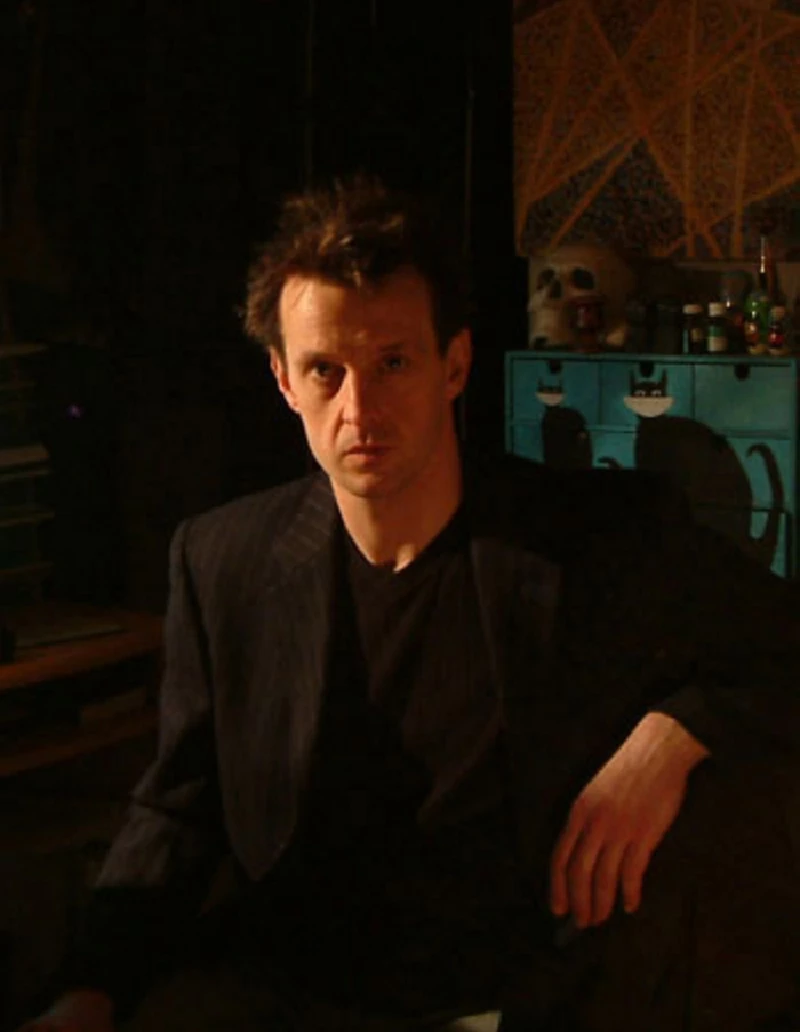
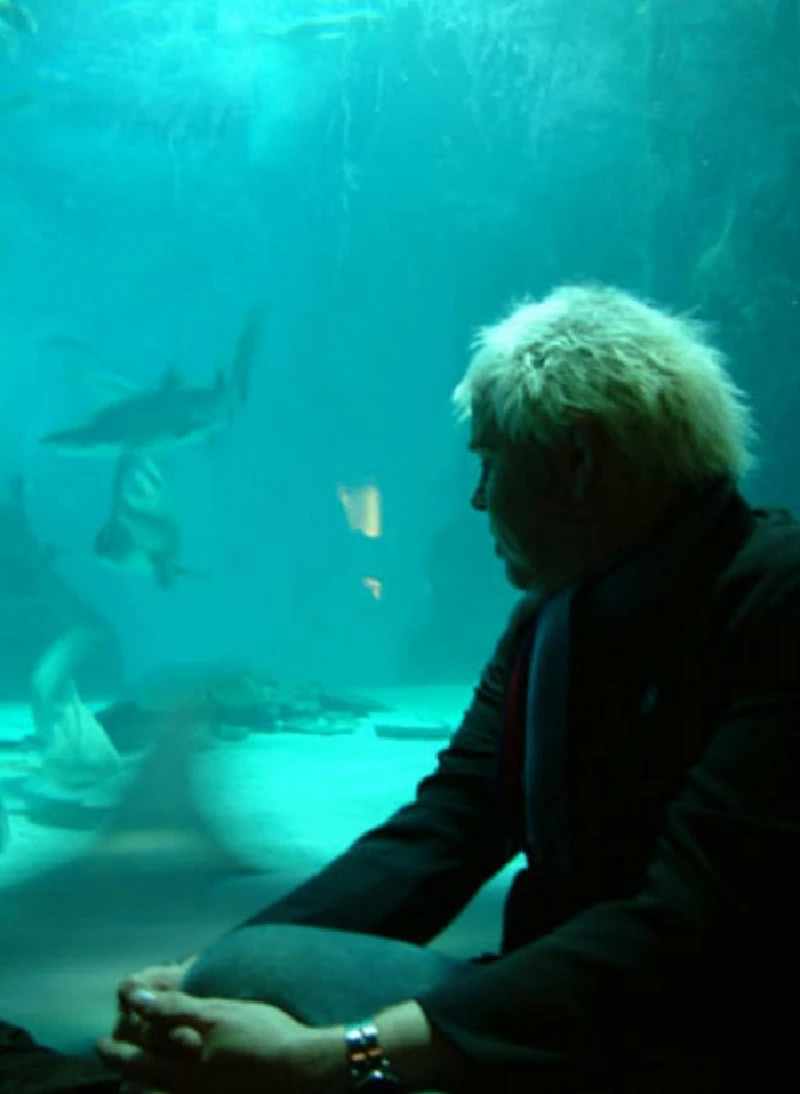
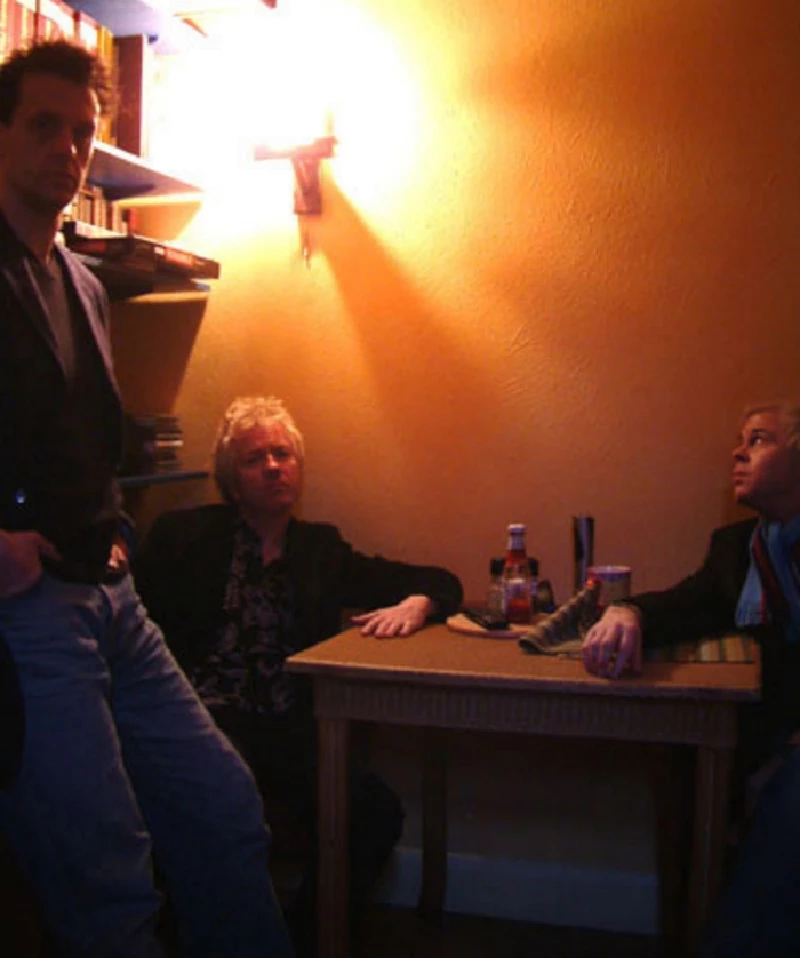
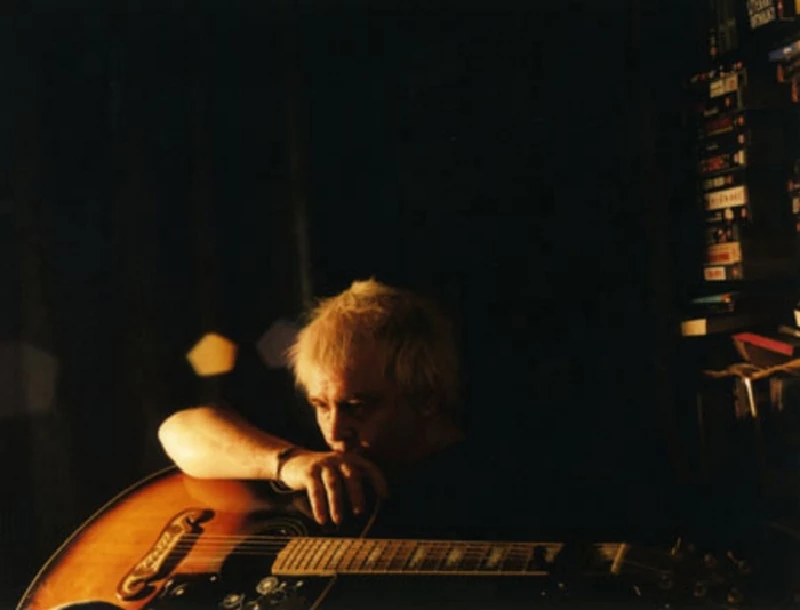
most viewed articles
current edition
Carl Ewens - David Bowie 1964 to 1982 On Track: Every Album, Every SongArmory Show - Interview with Richard Jobson
Colin Blunstone - Thalia Hall, Chicago, 16/7/2025
John McKay - Interview
Bathers - Photoscapes 1
Visor Fest - Valencia, Spain, 26/9/2025...27/9/2025
Billie Eilish - O2 Arena, London, 10/7/2025
Robert Forster - Interview
Loft - Interview
Sir Tim Rice - Interview
previous editions
Manic Street Preachers - (Gig of a Lifetime) Millennium Stadium, Cardiff, December 1999Heavenly - P.U.N.K. Girl EP
Beautiful South - Ten Songs That Made Me Love...
Oasis - Oasis, Earl's Court, London, 1995
Trudie Myerscough-Harris - Interview
Prolapse - Interview
Pixies - Ten Songs That Made Me Love...
Coldplay - Wembley Arena. London, 16/8/2022
Boomtown Rats - Ten Songs That Made Me Love....
Peter Perrett - In Dreams Begin Responsibilities Interview Part One
most viewed reviews
current edition
Davey Woodward - Mumbo in the JumboSick Man of Europe - The Sick Man of Europe
Amy Macdonald - Is This What You've Been Waiting For?
Phew, Erika Kobayashi,, Dieter Moebius - Radium Girls
Lucy Spraggan - Other Sides of the Moon
Bush - I Beat Loneliness
Alice Cooper - The Revenge of Alice Cooper
Suzanne Vega - Flying With Angels
Cynthia Erivo - I Forgive You
Blueboy - 2
Pennyblackmusic Regular Contributors
Adrian Janes
Amanda J. Window
Andrew Twambley
Anthony Dhanendran
Benjamin Howarth
Cila Warncke
Daniel Cressey
Darren Aston
Dastardly
Dave Goodwin
Denzil Watson
Dominic B. Simpson
Eoghan Lyng
Fiona Hutchings
Harry Sherriff
Helen Tipping
Jamie Rowland
John Clarkson
Julie Cruickshank
Kimberly Bright
Lisa Torem
Maarten Schiethart